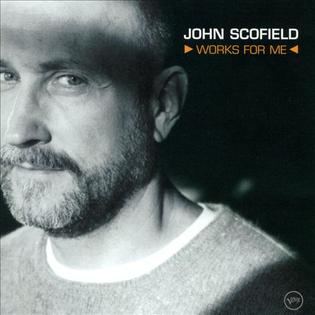Michael Brecker, 'Pilgrimage' (2007)
At the end of Playing Changes is a list: The 129 Essential Albums of the Twenty-First Century (So Far). I organized these by year, and then alphabetically by artist name. I'll be running them down here, in that order. (No one appears more than once as a leader, though there’s ample overlap in personnel.)
Michael Brecker was one of a relatively small handful of modern jazz musicians to single-handedly change the state of the art. He did so as any jazz musician would, by building on and extending an existing language. He was a tenor saxophonist with an absolute technical command, bordering on the superhuman. And his style enacted a malleable combination of John Coltrane’s harmonic genius, Stanley Turrentine’s soul, Johnny Griffin’s ferocity and Sonny Rollins’ rhythmic aplomb (and on and on).
By and large, though, Brecker made his impact in the last third of the 20th century. He was an absolute terror during the 1970s, ‘80s and ‘90s — initially with the jazz-rock bands Dreams and The Brecker Brothers, and then as a killer-for-hire on an imposing run of pop hits.
It’s safe to say that few living jazz musicians loomed larger for me as a teenager. I remember giving my dad very specific instructions when he went on a business trip to Japan: he had to go to a record store and find a copy of Smokin’ In the Pit, a live double album by Steps, only available as an import. (Brecker’s solo on “Tee Bag,” a Mike Mainieri tune, made it worth the effort.) I obsessed over his self-titled 1987 solo debut, and eagerly greeted subsequent efforts like Tales From the Hudson, featuring McCoy Tyner in superb form.
I could go on, but we’re here to talk about the Brecker album I included in the Essential Albums list. It’s the final album Brecker made before his untimely death, of a rare form of leukemia, at age 57. He titled this album Pilgrimage, and made it with a clear understanding of his fate. He surrounded himself with friends, some of the greatest musicians on the planet, and wrote a batch of tunes designed to put them through their paces, in the best way.
The album was released posthumously, and I wrote an admiring capsule review in an Arts & Leisure Playlist:
Pilgrimage (Heads Up) is the final statement by the tenor saxophonist Michael Brecker, who died in January, and it represents both a postscript and a pinnacle. Mr. Brecker had been struggling with leukemia for more than a year when he entered a studio last August with a spirit of urgent conviction and a stack of original compositions. You don’t need to know this to be astonished by the mastery and immediacy of the album, which he created with the guitarist Pat Metheny, the bassist John Patitucci, the drummer Jack DeJohnette and the pianists Herbie Hancock and Brad Mehldau. The songs are harmonically advanced yet often catchy; some, like “Five Months From Midnight,” shrug off their cobweb intricacy. Mr. Brecker plays with lucidity and passion on the churning “Tumbleweed” and the brooding “Half Moon Lane,” and his work on the title track — a spiritual anthem in the John Coltrane vein that shifts into a modern groove — feels calmly valedictory. Of course there is poignancy in the album’s circumstances, which are impossible to ignore. But the power of this music is more than sentimental. In its balance of ambition and abandon, serious-mindedness and ebullience, there’s a crystallization of what jazz, at its best, is about.
Here is a standout track from the album, featuring Mehldau on piano. It has all the hallmarks of a classic Brecker tune. Listen to the tenor solo and tell yourself this man wasn’t in fact invincible.
Purchase Pilgrimage at Amazon, or stream it on Spotify or Apple Music.



